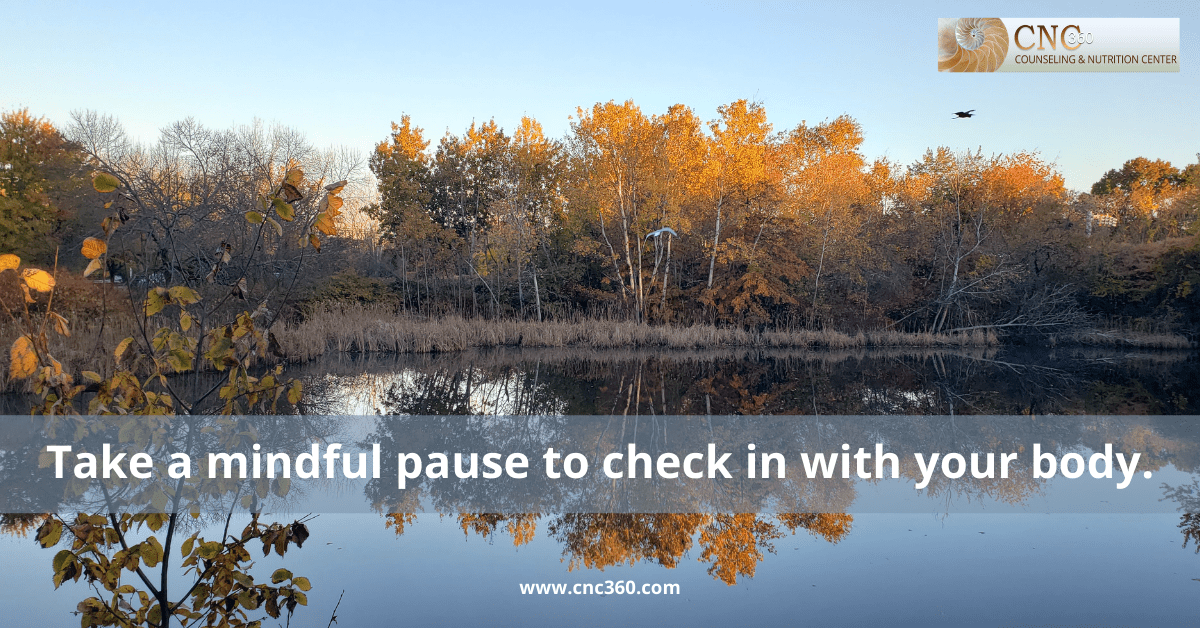By Nicole Patience MS, RD, LDN, CDCES, CEDRD
The stress of the pandemic has strained our resources in so many ways.
If you have the added burden of an inner critic, social gatherings can be overwhelming. Well-intended small talk has the potential to leave us feeling less than terrific about ourselves. What am I doing with my life? What did I do in the last year that is worthy of group conversation or feels entertaining? What is something I am doing for fun? Am I ready to expose my body and the changes that reflect the emotional strain it has held over the last year?
Just like any life transition, re-emerging from the pandemic can increase feelings of stress and vulnerability, which can also mean a greater pull towards using eating-disordered behaviors to cope. One universal artifact of our collective experience in the pandemic is that we are all entering into challenging situations from a depleted state, unlike other life transitions you may have experienced in the past. Some transitions may have allowed you to come from a rested state to meet a challenge, such as heading off to school after a restorative summer or residential eating disorder treatment step-down to home-based virtual services.

With the anticipation and demands of the holidays, eating disorder recovery challenges may include (but are not limited to) the challenge of attuning to our internal cues for emotion and appetite, exposing more of your body (not just your head), the endurance of being present with people for longer periods of time, eating around others, hearing conversation about body shaming or dieting, dressing in a way that honors your body and feels comfortable and confident, and engagement with foods that you may not be accustomed to eating in your daily routine at home. This stress may block your ability to access the multitude of coping skills and tools that you have practiced and applied in less taxing situations.
While you may have employed restrictive eating or binge eating to numb emotions, managing stress in recovery will look different. The skills you practice with your recovery team can help you feel grounded and re-align with your intentions. What do I want to get out of this situation? What would make it more comfortable? Are my body’s fueling needs met? What am I thinking and feeling right now?
The ability to bring attention and compassion to your stress associated with re-emergence at the holidays is a gift you can offer yourself, and one that can leave you feeling a greater connection with your body and prepare you to take on the hardest of challenges. Finding your power, grounding in what you know to be true, and serving as a self-advocate to meet your needs when in a social situation, can leave you less depleted and hopeful for restorative connections in the future.
3 Takeaways to Reduce Re-entry Stress Around Holiday Gatherings:
- Set gentle expectations, communicate these with others
- Apply what you learned about yourself and what you need to stay grounded during the pandemic
- Take mindful pauses to check-in with your comfort level and boundaries during gatherings
